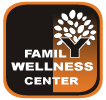Continuing care and AfterCare
This 90-day program is developed for each client before leaving the Intensive Outpatient Program although it is optional. These plans might include ongoing counseling, participation in AA or NA meetings, transition groups, alumni contacts, and other Twelve Step support groups, or taking additional steps to advance education or career. Clients are also encouraged to participate in services available at the Center, which includes ongoing contact with clinical staff, lectures, workshops, reading materials and participation in the Family Program.
The primary goal also of the Aftercare program is to help clients grow beyond their primary treatment experience by developing concrete skills to seek and maintain financial, physical and spiritual balance in sobriety. Clients work toward becoming sober, responsible, independent, and emotionally healthy individuals.
The program assists the client in his or her transition back to home, work, and the community. Regular support meetings help clients build from the gains they made during the first phase of treatment. Each client is assigned an Aftercare recovery counselor. Clients develop and use relapse prevention strategies to help them overcome situations, feelings and thoughts that could trigger a relapse or return to active addiction.
This program is also open to clients who have not received treatment at Family Wellness Center but feel they could benefit from structured support. However, prior to accessing this program, individuals must complete an assessment to determine their suitability to the program.
Program Components
Group sessions consists of two parts:
- Topic-focused psycho-educational lectures
- Group feelings therapy, which integrates the psycho-educational topic.
The Family Program meets every Wednesday afternoon and involves lectures and group therapies to educate family members about the recovery process and also includes the following:
- Ongoing case management
- Ongoing group meetings for the client and one family member
- Specialized relapse prevention group
- Short-term, individual, family, and couple counseling
- Individual contact with a recovery counselor, as needed
- On-site 12-Step meetings.
